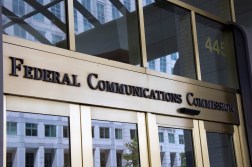Chicago, Denver voted to take broadband ‘seriously’ on Tuesday

Voters in several U.S. cities, including Denver and Chicago, this week approved referendums supporting municipal broadband.
The approvals of the referendums, while non-binding, show that a growing number of cities are taking municipally owned internet infrastructure “seriously” in a way they haven’t in the past, said Chris Mitchell, Director of the Community Broadband Networks Initiative at the Institute for Local Self Reliance.
On Tuesday, 83.5% of Denverites voted to opt out of a Colorado state law that prohibits municipalities from investing in or building their own broadband network, opening the possibility of a city-owned network. Meanwhile, 90% of Chicagoans voted in favor of the city pursuing broadband internet connectivity for all residents, though that measure was also non-binding.
While Mitchell said he doesn’t expect any immediate action to fulfill those votes, Tuesday’s results represent a step forward that most other cities haven’t taken.
“To have such an overwhelming vote has to make this a higher priority for local government than we’ve seen it,” Mitchell said. “They think [broadband] is a problem that’s been solved by private companies, and citizens strongly disagree with them.”
Rather than spur a wave of municipal broadband networks, Mitchell said, it’s more likely that Tuesday’s results — voters in two small towns in Colorado, Berthoud and Englewood, also opted out of the state’s municipal broadband restrictions — will force local officials to take a harder look at long-term broadband expansion strategies.
Chicago, like virtually every other metropolitan area in the country, has relied this year on philanthropy or partnerships with incumbent telecommunications companies to provide internet to households in previously underserved areas, particularly in light of the COVID-19 pandemic.
In June, Mayor Lori Lightfoot announced a $50 million program to connect 100,000 students with internet by the beginning of the current academic semester. Both Chicago and Denver were recipients of Comcast’s “Lift Zone” program to supply community centers with Wi-Fi for school-age children. By voting to open up the possibility for city-owned networks, however, more permanent solutions might be in the future of the two cities.
“I think this election is the first of many in which we’ll see these kinds of referendums, even non-binding ones, in which people are just trying to force elected officials to do something,” Mitchell said.






